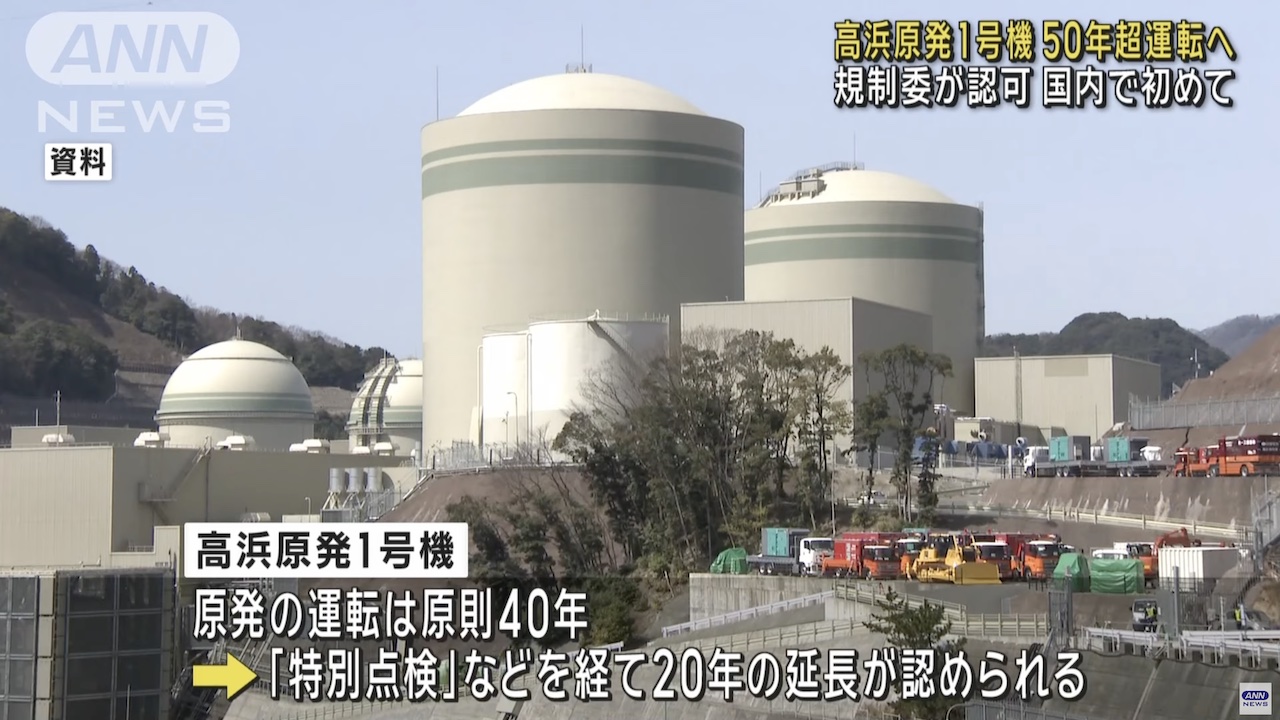TOKYO, Oct 16 (News On Japan) - Japan's Nuclear Regulation Authority has granted approval for Kansai Electric Power Company's Takahama Reactor No. 1 to operate for over 50 years, marking a first in Japan, reaching its 50th anniversary next month.
Takahama Reactor No. 1, which began operations in 1974, is the oldest operating nuclear reactor in Japan. After the Great East Japan Earthquake, the general rule for nuclear reactor operation was set at 40 years. However, Takahama Reactor No. 1 was allowed a 20-year extension following a "special inspection."
Continued operation requires approval of safety regulations every 10 years, and on October 16th, the Nuclear Regulation Authority approved the safety regulations submitted by Kansai Electric.
This marks the first time in Japan that a reactor has been approved to operate for over 50 years.
Source: ANN















